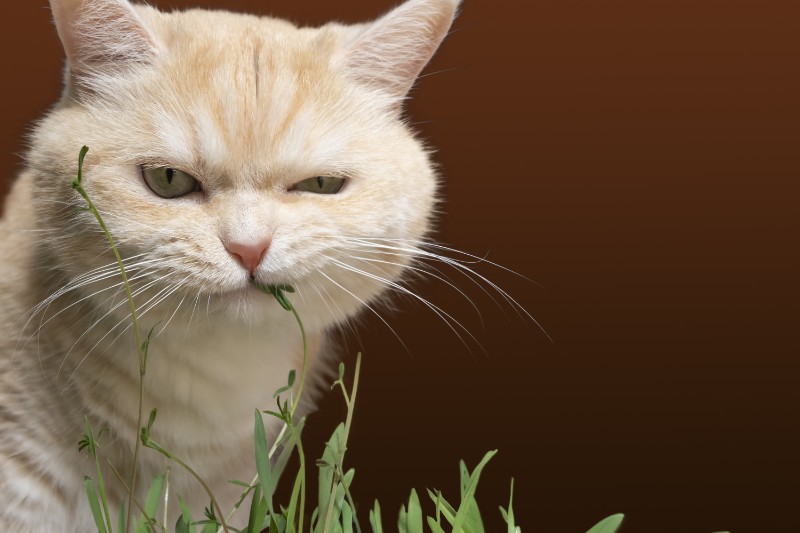Prevent a Pet Poisoning
Whether we have a brave and independent cat, or a brand new puppy who loves to explore, we love our pet’s curious natures. But sometimes this means they are prone to getting into (and eating) things they shouldn’t.
In recognition of Pet Poison Awareness Week the third week of March, we’re focusing on preventing a pet poisoning, and what to do if your adventurous pet does sample something toxic.
Pet Poisoning Basics
Poisons act fast, so if your pet has ingested something toxic, seek veterinary care right away. Don’t waste time on the internet or leave a voicemail for your veterinarian. The sooner we can start treatment the better the outcome for your pet. If it’s after hours, seek emergency care immediately.
Signs of pet poisoning can be subtle at first, and can range from mild to severe depending upon what and how much your pet ate. Different poisons affect body systems differently, so it’s important to find the packaging and to know exactly what your pet ate. Some signs of pet poisoning include:
- Vomiting
- Diarrhea
- Drooling
- Pale gums
- Racing heartbeat
- Weakness
- Difficulty breathing
- Muscle tremors
- Excessive thirst and/or urination
- Pawing at the mouth
- Seizures
- Collapse
Pet Poisoning in Your Home
It’s amazing and somewhat scary just how many substances in our homes can cause pet poisoning. Some common sense is at the crux of preventing a pet poisoning: keep toxic materials out of your pet’s reach.
Many people don’t realize just what’s toxic to pets. Here’s a primer, based on common reasons people call the ASPCA Animal Poison Control Center.
People food – human foods that are toxic to pets include chocolate, raisins and grapes, macadamia nuts, garlic and onions, bread dough, and alcohol. Xylitol is a sugar substitute found in peanut butter, toothpaste, and other common household products. Xylitol is extremely toxic to dogs and should be kept out of reach.
Human and pet medications – both human and pet medications can pose a hazard to pets if ingested. Pets have been known to ingest people medications, and are especially attracted to pet parasite preventives that are beef or pork flavored. Make sure to keep pet medicines clearly marked and in a separate spot from your human medications.
Cleaning supplies – many cleaning supplies contain chemicals that can be irritating or toxic to pets. Keep all household chemicals stored safely away from pets. When cleaning, keep pets from “helping” you. And make sure to leave your toilet lid down, especially if you use a chemical additive to your tank.
Flowers and plants – there are many flowers and plants – both indoors and out – that attract pets. Some of these are fairly benign, but others can cause GI upset or worse. Lilies, oleander, azaleas and other houseplants can pose problems for cats in particular. Check the ASPCA list of poisonous and non-poisonous plants for further guidance.
Essential oils and potpourri – essential oils and diffusers are commonly used in many homes. Liquid potpourri and some essential oils can be toxic, especially if spilled and licked off the floor or paws. Make sure your pets cannot access potpourri and essential oils stored in your home, and make sure there is adequate ventilation when diffusing oils.
Yard, Garden and Garage
Your outdoor areas and garage can also contain items that can be toxic to pets. Keep these and all other hazards stored safely away from where pets can access:
- Bone and blood meal
- Cocoa mulch
- Fertilizer
- Snail and slug poison
- Rat and mouse bait
- Herbicides
- Insecticides
Mushrooms are especially toxic, and can be fatal if ingested. Take care to clear your yard of any mushrooms, especially if you have curious puppies who like to put anything and everything into their mouths.
Your garage may have a few items that should be stored safely away from pets. Antifreeze is particularly toxic, and unfortunately has a sweet odor and taste that pets love. Make sure to clean up any spills, and to monitor pets closely whenever they are in the garage.
Sunrise Boulevard Animal Hospital is here to help if you have questions about pet poisoning. Please don’t hesitate to call us or the emergency clinic if you’re worried. With planning, awareness, and prevention, we can make sure your pet doesn’t have to experience a pet poisoning. As always, our team is happy to answer any pet health questions you have.

